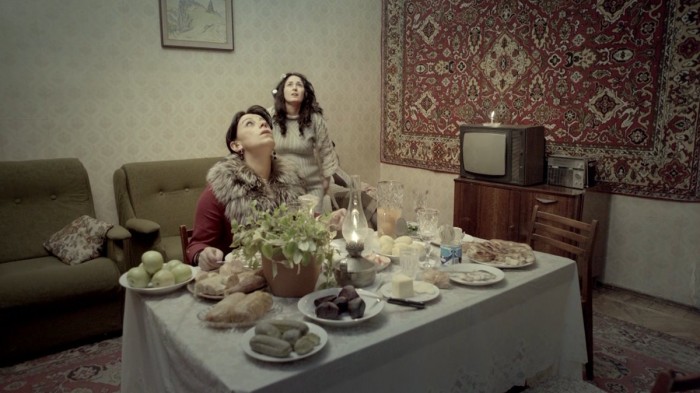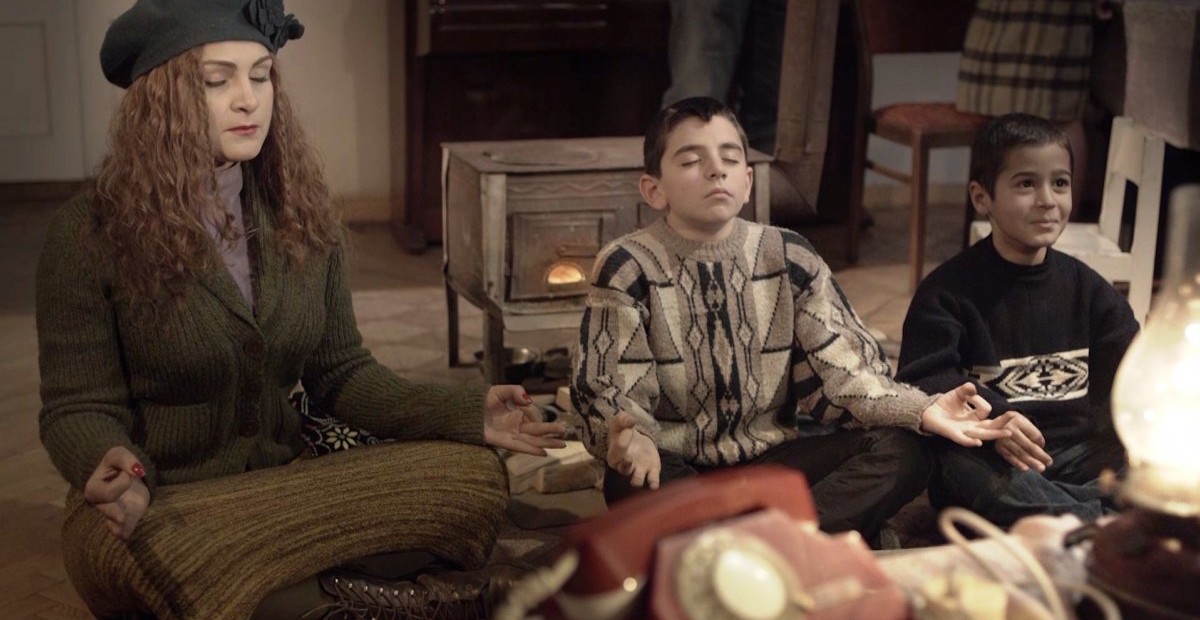By Stephanie Hotz
Directed by Lusine Sargsyan
Lusine Sargsyan’s 2014 feature film, The Abode, is a bittersweet drama reflecting the personal experiences felt by Armenians during and after the Artsakh Liberation War (1988-1994). Despite spanning various times, both past and present, the film’s five short stories remain spatially linked, all interconnected through an apartment complex and its winding stairwell in Yerevan, the Armenian capital.
Each narrative begins and ends in ambiguity, giving viewers the responsibility to piece together the puzzles that comprise each character’s personal struggle. In an interview with Eric Nazarian at the USC Institute of Armenia Studies, Sargsyan explains that three of the five narratives are based on true events. It is therefore quite fitting that her intimate framing and emphasis on the closing and opening of doors reminds viewers that cinema affords us a privileged position, one in which we can experience another’s culture, happiness, and tragedy (and in this case, even doing so from another’s “abodeâ€).
The first short story follows one tenant’s (Tigran) patience and generosity during a routinely scheduled power outage as his evening plans are continually interrupted. Tigran hopes to spend a romantic night with his loved one, but their date is put on hold when a neighbor knocks on his door (the first of many knocks that night) asking him to help her sick mother. Tigran must then play host to the neighboring family, their doctor, and their friends, as he appears to be the only tenant with a working phone and television. Tigran and his guest patiently wait for the hour in which they can resume their date, but in the meantime they offer any service they can provide. This opening narrative is exemplary of the message that is woven throughout the film: that neighbors (both literally and figuratively) must remember the importance of solidarity in times of struggle.

The following stories stress the value of community and unity in a nation that has experienced social and political strife. A couple separated by incidental circumstances reunites after 5 years; they spend an afternoon painfully recounting their separation and discussing how it could have been avoided. Another man, caught in the middle of a robbery investigation, chooses to remain loyal to his brother and colleague regardless of the law. A group of three female friends, two of whom are pregnant, gather for dinner and support each other as their kin are fighting in the war. The most poignant account details the friendship between a war veteran and his golden retriever, as well as the veteran’s rapport with his caretaker, both relationships portraying a powerful portrait of loyalty.
For a feature that is bound to such a dramatic and recent historical event, there are surprisingly few references to the Armenian conflict, making it difficult for viewers unfamiliar with Armenian history to contextualize the narrative events. However, the true focus of the film resides in its depiction of hope and community, sentiments that are relatable to anyone experiencing (or having had experienced) personal or national trauma. Viewers who enjoy docu-dramas and deeply moving characters will cherish every individual in Sargsyan’s feature. The Abode’s diverse cast of characters reminds us that our human tendency is to find hope and support even in the darkest of times.
Watch The Abode on FilmDoo.com.









